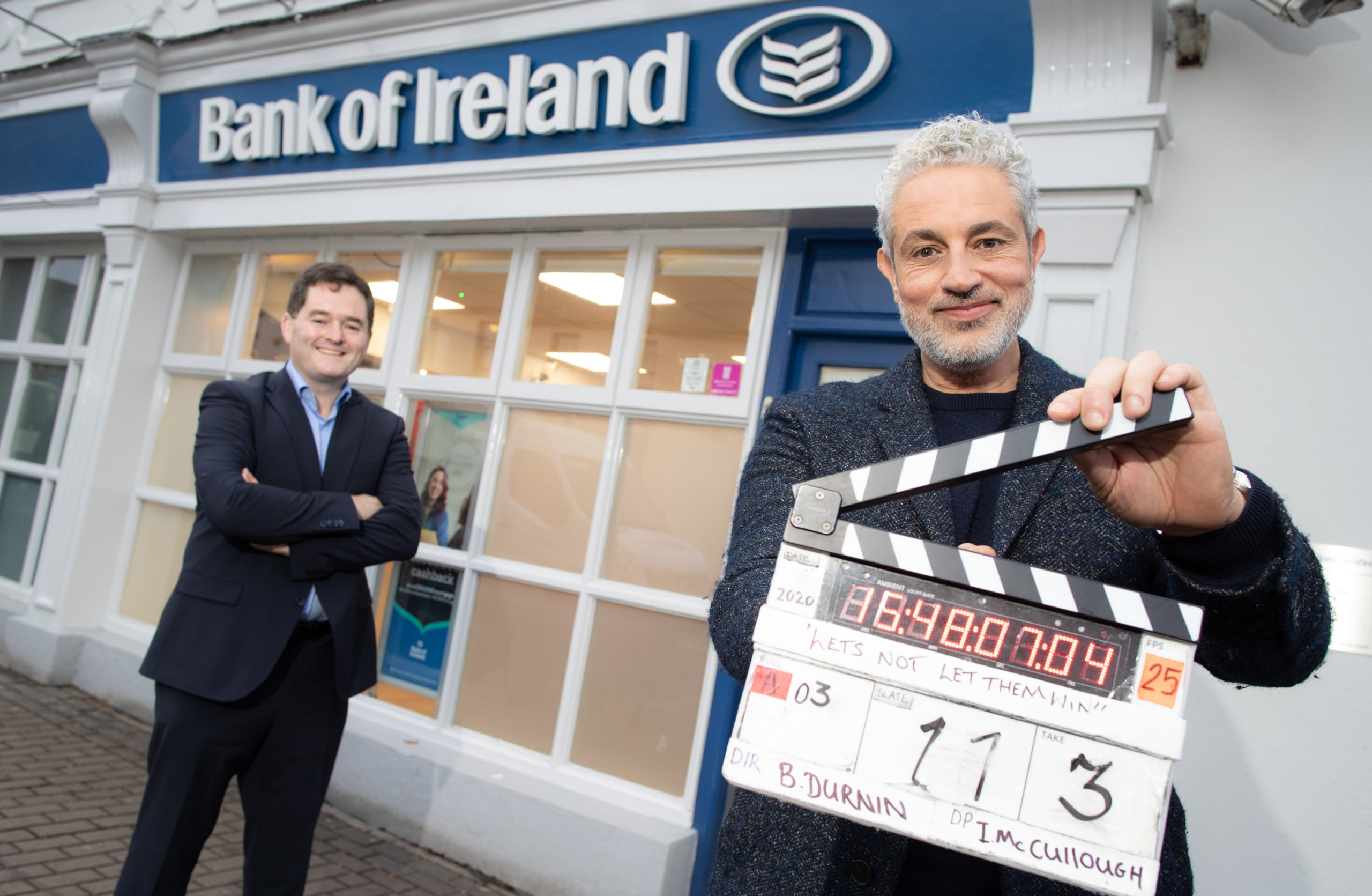Buyer Beware! Consumers worried about fraudsters

Bank of Ireland has launched an extensive, nationwide public awareness campaign on fraud. Fronted by TV personality Baz Ashmawy and running across TV, radio and social media through November and December, the campaign aims to remind consumers to be alert for potential fraud and provides guidance in the lead up to Christmas.
Majority of consumers will shop more online this Christmas than last
- 62% of consumers are worried about being targeted by online fraudsters
- 43% feel more exposed to online fraud due to COVID-19 and the need to be online
- 58% intend to shop online more this Christmas than last year
- 55% have received a fraudulent email/SMS/call claiming to be from their bank
More than six in ten (62%) consumers are worried about being targeted by online fraudsters and over four in ten (43%) feel more exposed to online fraud threats due to being online more since COVID-19, according to research by Bank of Ireland. The survey also found that almost six in ten (58%) intend to shop more online this Christmas compared to last year and nine in ten consumers are now banking or shopping online.
The study of 1,000 consumers was carried out as Bank of Ireland launches the most extensive public awareness campaign on fraud by any bank in Ireland. Fronted by TV personality Baz Ashmawy and running across TV, radio and social media through November and December, the campaign aims to remind consumers to be alert for potential fraud and provides guidance in the lead up to Christmas. Fraud awareness and prevention is a critical part of Bank of Ireland’s Financial Wellbeing Programme for customers.
The research also shows that over half (53%) admit to spending more time shopping online since the onset of COVID-19, rising to two thirds (66%) of 18 – 34 year olds. Four in five (80%) consumers are opting to use debit and credit cards in place of cash during the pandemic. More than half (55%) of consumers indicated they have received a fraudulent email, text message or call claiming to be from their bank in the past, while seven in ten (69%) say they regularly consider the threat of fraud when online.
Commenting on fraud, Gavin Kelly, CEO Retail, Ireland, Bank of Ireland said: “Due to COVID-19 we’re all spending a lot more time online – for work, keeping in touch with people, and shopping – which means we are more susceptible to fraud. As we head towards the Christmas period, at Bank of Ireland we are ramping up our efforts to remind people to remain vigilant, particularly when online.
With Level 5 restrictions now in force and many retail outlets shuttered across the country, online activity will spike even further in the coming weeks. Our research shows that over half of us have received a fraudulent email, text message or call claiming to be from our bank, and this trend is very likely to continue as our use of cards, online shopping and digital banking continues to increase. Our new nationwide fraud awareness campaign will help protect customers’ financial wellbeing and emphasises that by working together we won’t let the criminals win.
Fraudsters target customers of banks, utility companies, postal, taxation and social welfare services and other organisations. They are active day in, day out, 24/7. We see the stress it causes for consumers and businesses on an ongoing basis. As a bank we have a responsibility to be extremely vigilant to these attacks and to advise our customers how to deal with the various threats. We will never text, send emails or call a customer looking for their confidential banking details. You can forward any suspicious emails or texts to us at 365Security@boi.com and if anyone is concerned that their account or personal information has been compromised, they should call our 24/7 freephone line 1800 946 764.
The research also revealed:
- 66% believe they know the kind of tactics used by fraudsters in attempting to steal their money.
- 95% said they would have little or no trust in receiving a text message or e-mail from their bank with a link requesting them to login to internet banking.
- One in four (25%) feel comfortable sharing their personal information, rising to one in three (33%) of 18-34 year olds.
For more advice and information on fraud, visit www.bankofireland.com/security or www.fraudsmart.ie
The research was commissioned with RED C and the survey was conducted from 8th to 13th October 2020 with a national representative sample of 1000 respondents.